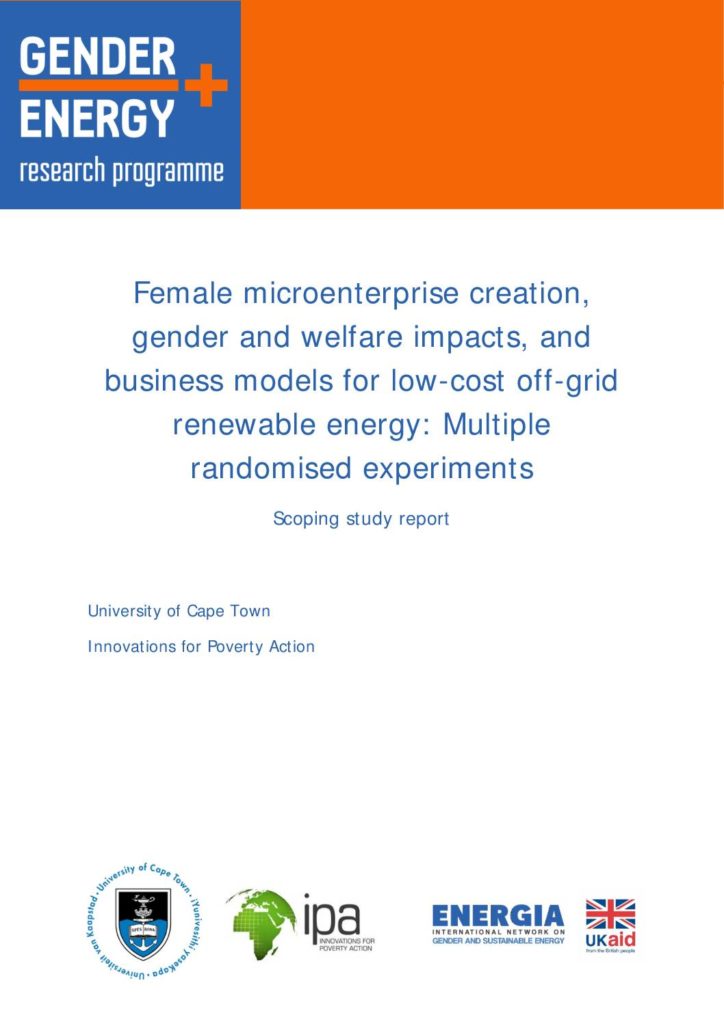Globally, 1.3 billion are without modern power, and grid expansion is not expected to keep pace with population growth. The viability of most enterprises for renewable lighting has been severely limited by pricing of products and financing mechanisms available. Behavioural aspects such as inconvenience associated with use represent further barriers to uptake and use of these technologies. We therefore also investigate optimisation of business models through a number of financial and behavioural interventions.
While distribution of solar-lanterns and home-solar-lighting-systems have made in-roads in the renewable market in various developing countries, most of these products still represent big capital outlays and are mostly unaffordable to under-$1.25-per-day consumers of unhealthy and environmentally harmful kerosene and torches. LED lighting (with cheap upfront costs and affordable recharging costs) presents a possible alternative which can at least help bridge the gap for poor households in off-grid regions, aspiring to ascend the energy ladder.
By engaging with a range of stakeholders from the renewable energy lighting sector, we will investigate the feasibility of different business models and specifically models aimed at empowering female entrepreneurs in this industry. We use both qualitative and quantitative methods to evaluate strategies to increase adoption of new technologies and regular use of technologies, as well as, the level of gender empowerment achieved in these models.
Quantitatively, using large scale randomised control trials, we focus primarily on one LED provider – to test how both variation in the pricing of a product and using behavioural interventions may impact on uptake of products, as well as, increased usage of products. We also test how different gender quotas amongst entrepreneur groups impact on both profitability and empowerment of females in communities. These issues are relevant and transferrable to most related products in the renewable lighting industry.

Follow us on: